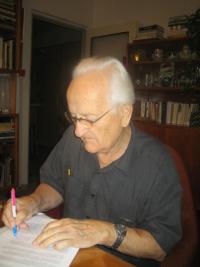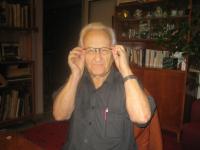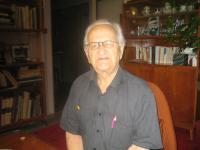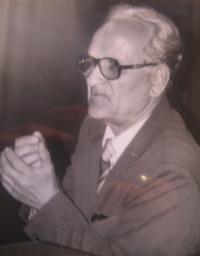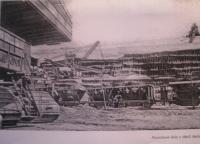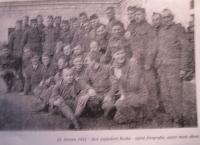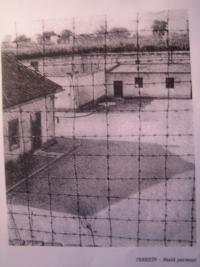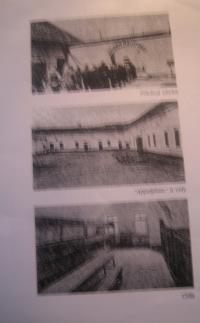One has to see the people and not the regime

Download image
Dr. Václav Dobiáš was born December 4, 1918 in Roudnice nad Labem, Czechoslovakia. He grew up in Prague, where he attended elementary school. He went to grammar school in Nový Bydžov, but eventually returned to Prague to study medicine. As a university student, he experienced the November 17th student protests against Nazi occupation, and the mass arrest of students. Although Vaclav attended the funeral of Jan Opletal, a fellow student killed in the protests, he was not arrested because he lived with his parents and not in a student residence hall. He began working as an accountant in the Kooperativa insurance company, but wanted to join the struggle against the Germans. Together with some other medical students he joined an illegal resistance organization, and helped to distribute pamphlets. The group was eventually caught by the Gestapo, and on August 10, 1940 Vaclav was arrested and interrogated in the Petschek Palace in Prague. He then served detention in the Prague-Pankrác prison, in the Small Fortress in Terezín, in Bautzen and Dresden, where he was sentenced to 2,5 years, and finally in Halle and der Saale. After his release on February 2, 1943 he began working as an accountant for Koopeativa in Votice, where he also met his wife Libuše. He completed his studies of medicine after the war. He was sent for a two-year study of toxicology to Saint Petersburg and after his return he began working in the university hospital in Hradec Králové. He briefly served as a department head in Jaroměř, but in 1968 was asked to work as an expert on internal medicine at a polyclinic in Hradec Králové. He did not retire until he was 91 years of age. At present he lives in Hradec Králové.
